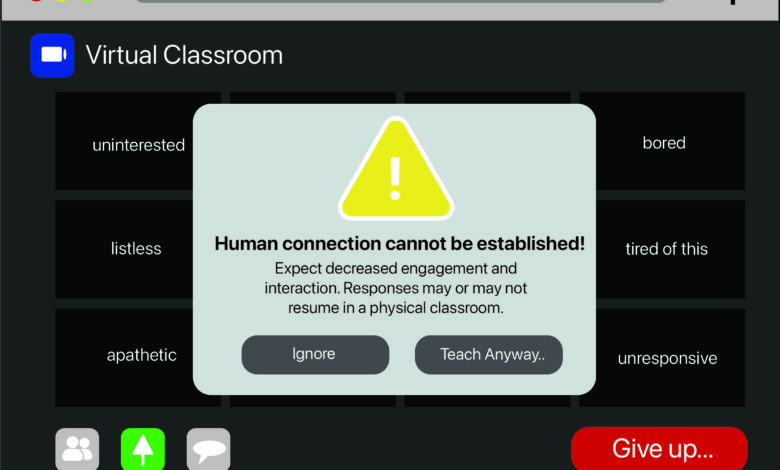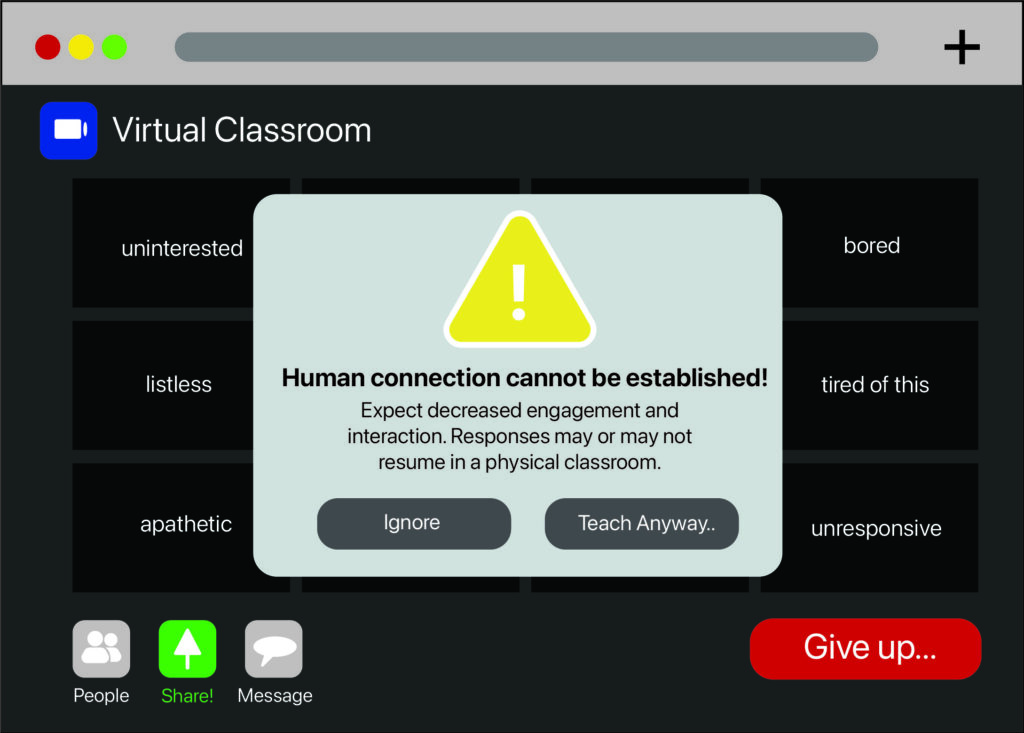
Time to unmute our pre-COVID social skills
By Maggie Peña
My psychology professor walked into class a few weeks ago and said, “Good morning!” No one acknowledged her, including me. It was only until she prompted us to respond that I heard a sea of “good mornings” from my classmates, who apparently did not think her remark prompted an answer.
It was an interaction that I have seen all too often. A speaker greets the group, everyone stays silent, and we continue with the event. However, after my professor prompted us to reply by saying “good morning” for a second time, I started to think about why no one answered the first time, and why she expected us to respond. I came up with a possible theory that could explain this discrepancy.
Based on the typical age for undergraduate students, my classmates and I are most likely between 18 and 22 years old. Meaning we were born between 2002 and 2006, and would have been between 8th and 11th grade when the COVID-19 lockdown began. During this time, we had to rapidly transition from normal middle school and high school to fully virtual learning. Despite it being hard to adapt, we still had pre-COVID rapport with our teachers which made it somewhat easier to participate in class. As we started the next grade and met new teachers, our previous social relationships were gone, and it became harder to want to participate.
In hindsight, I realize now that my teachers would greet us every class. COVID-19 started at the end of my 8th grade year, and moving on to high school stripped all of the bonds I had created with faculty at my middle school. So, the greetings that I learned to ignore turned into rhetorical statements that signified another day that I had to spend at school on Zoom. This differs from the experiences of the Rider faculty, because most of them were born before 2000. COVID-19 came into our lives at a very crucial time for social development, and our socialization in an education setting lagged as a result.

Graphic by Caitlin Lawlor/The Rider News
Perhaps my professor expected us to respond because she grew up in a pre-COVID environment where saying “good morning” elicited an opportunity to share kind words with others, while we grew up in an environment where a teacher’s “good morning” invoked anxiety in those who did not want to unmute themselves.
Now that we are five years post-lockdown, the behaviors that were ingrained in us during that time have not been reversed. Earlier in this piece, I mentioned how my classmates were not expecting our professor to encourage us to respond to her seemingly rhetorical greeting. Whether we are aware of it or not, COVID-19 impacted the way we interact with others. As we emerge into adulthood, it is important to understand that we are not children on a Zoom call anymore. Instead, we are adults entering higher education and the workforce who must be aware of our pre-COVID behaviors and strive to challenge them.
Maggie Peña is a freshman psychology major



